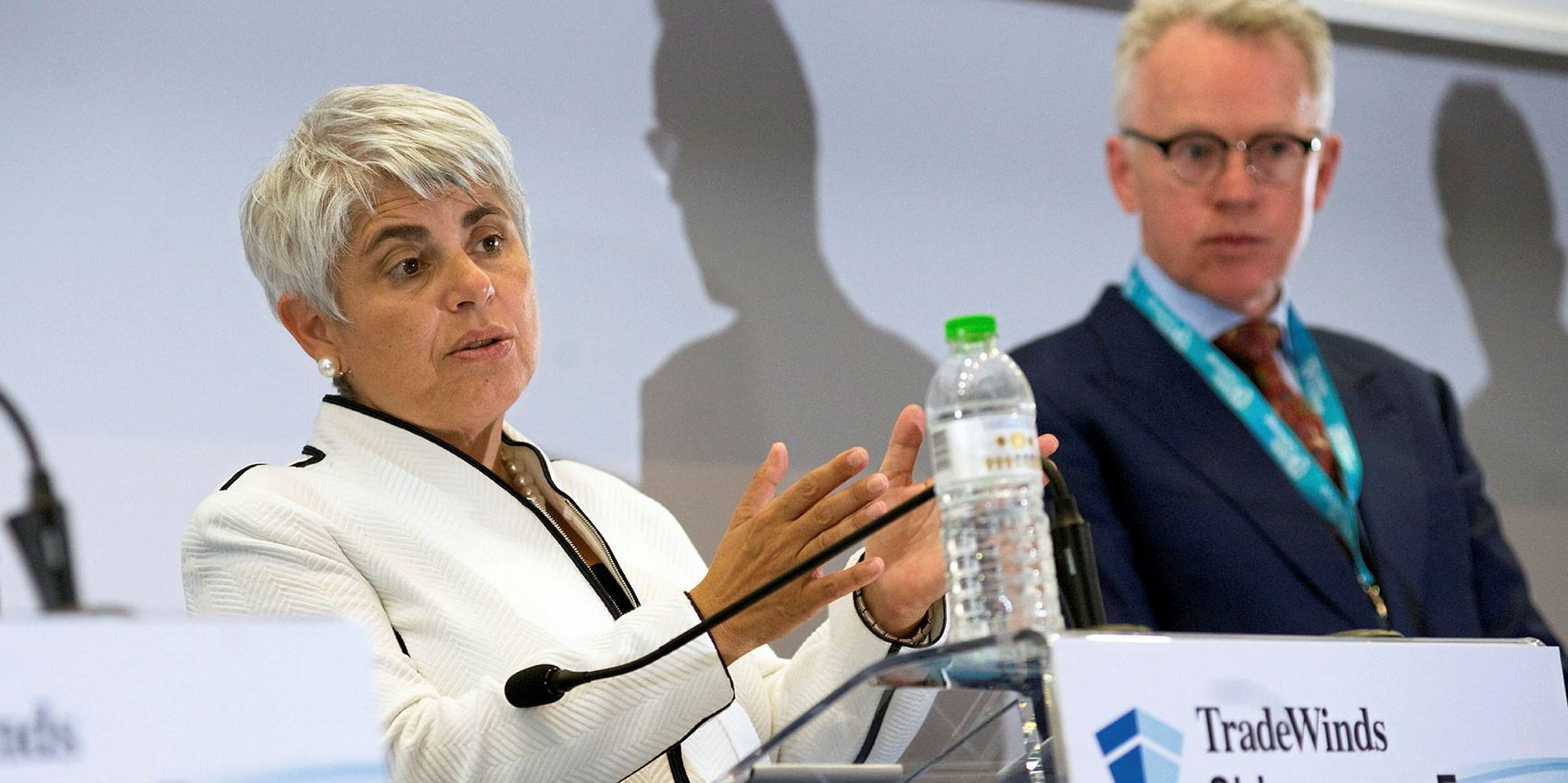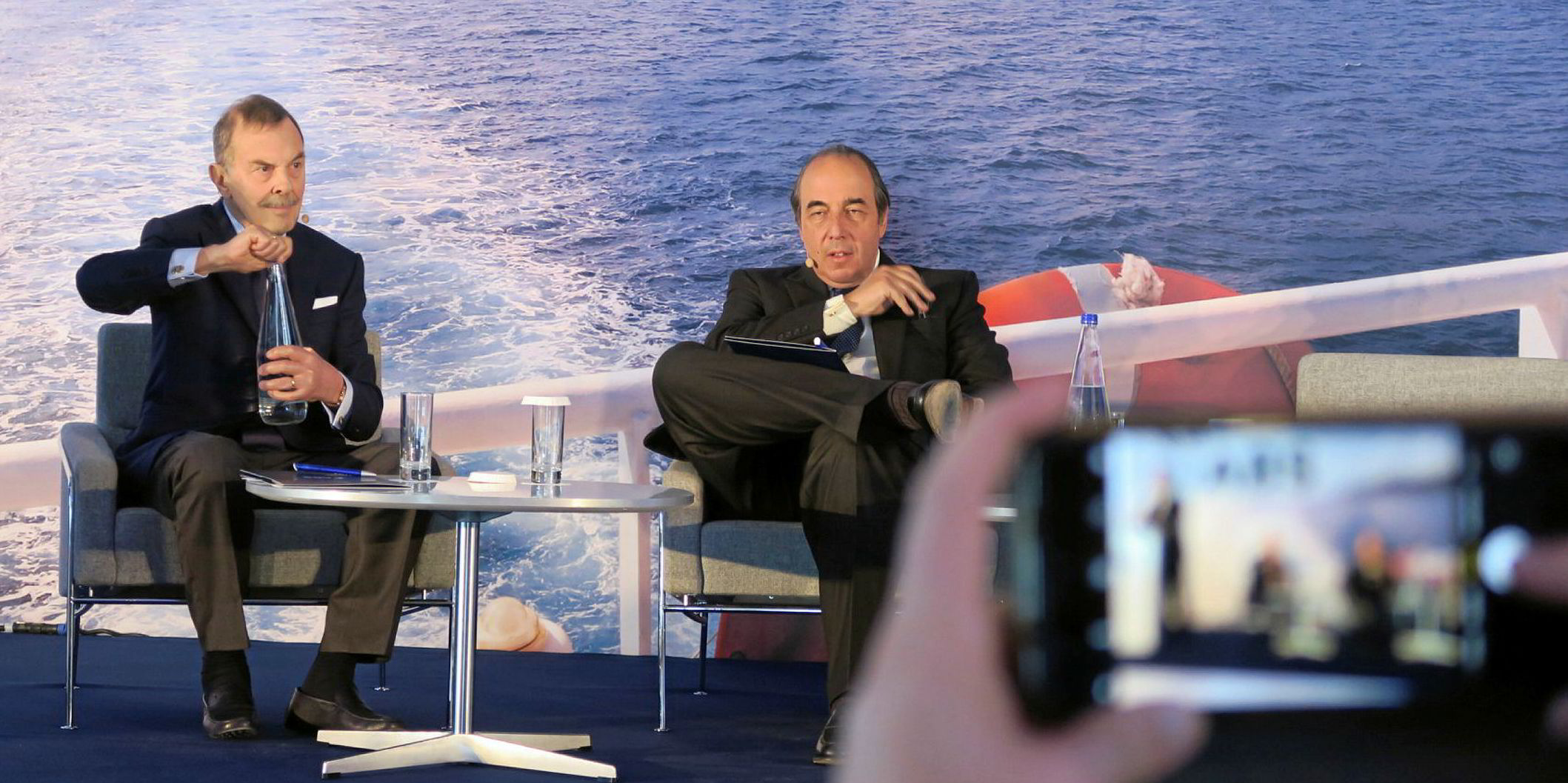Posidonia has a unique place in the shipping psyche. Part professional forum, part networking jamboree and part knees-up for the sales team, it continues to conjure up an intoxicating blend of inspiration and bleary-eyed regret.
Bonhomie gets you only so far in today’s world, however. Even Posidonia is not immune to the moving tides in the business world, as pressure ramps up on everyone to deliver results amid increasing external scrutiny.
So it was this year that conversations and transactions at the biennial Athens shipping expo gravitated to the big issue facing everyone in the business: how to manage the tightening grip of a swathe of regulations designed to protect the environment on the one hand, and how to defend investors on the other.
Front and centre for all shipowners and charterers is the rapidly approaching deadline to cut sulphur emissions from ship engine exhausts at the start of 2020.
As one shipbroker told me: “Scrubbers — it’s the only subject owners want to talk about right now. They walk into the party and it’s the first question they ask!”
Relentess industry lobbying
A cynic might say it is about time too, since the deadline has long been in place after IMO member nations decided to act four years ago. However, relentless industry lobbying since then to extend the deadline perhaps gave some people false hope that the rules would not come into effect any time soon.
It now looks certain they will be introduced, so everyone is scrambling for a solution, as conversations in Greece confirmed.
Intriguingly, it is not just about risk mitigation and how to source and switch to low-sulphur fuel. It is also about maximising the opportunity. And everyone knows the reputation of Greek shipowners and charterers for achieving just that.
Momentum is now clearly building behind those who want to use scrubbers to strip the sulphur from exhaust gases, allowing engines to continue to burn traditional high-sulphur bunkers.

For the first time, some are openly talking of the business opportunity that presents to take advantage of the price differential between low and high-sulphur fuel that may be as much as $200 to $250 per tonne.
First to break cover early in the week was John Angelicoussis, who boldly stated: “I have adopted scrubbers as I’m in the business of making money!” After that comment from Greece’s biggest owner went viral, many others become enthusiastic about the ploy.
Star Bulk Carriers, one of the biggest listed dry bulk owners, is fitting 22 of its ships with scrubbers, while one scrubber installer said it had more than 100 orders, with 30 more expected shortly.
It remains to be seen, however, whether “open-loop” scrubbers that discharge sulphur-contaminated water into the sea remain acceptable in the longer term.
They may be within the letter of the maritime rules today, but do they fit with the spirit of legislation intended to protect the environment tomorrow? That is a debate which is yet to play out.
While complying with the sulphur rules in the short term was at the front of everyone’s minds in Greece this month, following close behind was the question of the IMO’s new commitment to ensure the industry dramatically cuts CO2 emissions over the next 30 years.
Sovcomflot’s ground-breaking decision to build LNG-fuelled aframax tankers was a talking point, with the added incentive of lower port fees as well as cheaper fuel.
Prospects for the long-term growth in the market for traded LNG are also attracting a new cohort of Greek owners, following in the wake of major players Peter Livanos, George Procopiou and Angelicoussis.
That trio was vocal in its concern about the risk of erosion of high operating standards, while Livanos added his anger at the bilking of shareholders in some public shipping companies by shipowners more concerned with lining their own pockets than generating a fair return for all.
The GasLog chairman’s comments underlined how deeply the corporate governance agenda is being felt even among the community of Greek shipowners who have often regarded such concerns with disdain.
If Posidonia 2018 revealed one thing, it is this: compliance with rules and regulations — both maritime and financial — is no longer just for the little people or the losers. It is for those who intend to build sustainable business.





